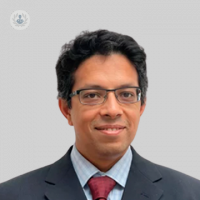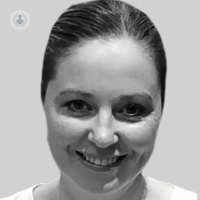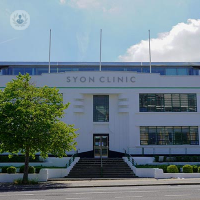What is pulmonary fibrosis?
Pulmonary fibrosis, or interstitial lung disease occurs when scar tissue builds up in your lungs, causing the lung tissue to thicken and harden. This makes it difficult to get oxygen into the blood, and it can lead to shortness of breath, among other symptoms.

Symptoms of pulmonary fibrosis
Pulmonary fibrosis manifests itself in the following ways:
- a dry cough
- unexplained weight loss
- tiredness
- shortness of breath
- muscle and joint pain
- swelling of the extremities of the feet or hands.
However, the symptoms of fibrosis may be different in each individual, depending on the course of the disease. The progress of the disease may accelerate, worsen, or not change over months or years.
What causes pulmonary fibrosis?
There are numerous causes of pulmonary fibrosis. Broadly, these include:
- Idiopathic pulmonary fibrosis (the most common form of fibrosis)
- Connective tissue disease related pulmonary fibrosis (conditions related to rheumatological disorders such as rheumatoid arthritis for example).
- Occupational or environmental factors, for example exposure to bird droppings leading to conditions like hypersensitivity pneumonitis.
- Asbestosis.
- Medication related (commonly chemotherapy drugs, heart medicines, some antibiotics, and some anti-inflammatory drugs).
Investigations for pulmonary fibrosis
Patients require a full comprehensive assess including a consultation to assess for causes and impact as well as testing which may include CT scanning, lung function testing, and blood tests.
What does treatment consist of?
Treatment for pulmonary fibrosis can include medications, including immunosuppressants and/or antifibrotic agents, oxygen therapy, pulmonary rehabilitation and lung transplantation. Scarring of the lung tissue is often not reversible (although in early stages there can be reversibility). The treatment can be with the aim to reverse, halt, or slow progression.
To find out the most appropriate treatment, you need to consult a specialist in pulmonology.
11-13-2012 06-07-2023Pulmonary fibrosis
Dr Amit Patel - Pulmonology & respiratory medicine
Created on: 11-13-2012
Updated on: 06-07-2023
Edited by: Jay Staniland
What is pulmonary fibrosis?
Pulmonary fibrosis, or interstitial lung disease occurs when scar tissue builds up in your lungs, causing the lung tissue to thicken and harden. This makes it difficult to get oxygen into the blood, and it can lead to shortness of breath, among other symptoms.

Symptoms of pulmonary fibrosis
Pulmonary fibrosis manifests itself in the following ways:
- a dry cough
- unexplained weight loss
- tiredness
- shortness of breath
- muscle and joint pain
- swelling of the extremities of the feet or hands.
However, the symptoms of fibrosis may be different in each individual, depending on the course of the disease. The progress of the disease may accelerate, worsen, or not change over months or years.
What causes pulmonary fibrosis?
There are numerous causes of pulmonary fibrosis. Broadly, these include:
- Idiopathic pulmonary fibrosis (the most common form of fibrosis)
- Connective tissue disease related pulmonary fibrosis (conditions related to rheumatological disorders such as rheumatoid arthritis for example).
- Occupational or environmental factors, for example exposure to bird droppings leading to conditions like hypersensitivity pneumonitis.
- Asbestosis.
- Medication related (commonly chemotherapy drugs, heart medicines, some antibiotics, and some anti-inflammatory drugs).
Investigations for pulmonary fibrosis
Patients require a full comprehensive assess including a consultation to assess for causes and impact as well as testing which may include CT scanning, lung function testing, and blood tests.
What does treatment consist of?
Treatment for pulmonary fibrosis can include medications, including immunosuppressants and/or antifibrotic agents, oxygen therapy, pulmonary rehabilitation and lung transplantation. Scarring of the lung tissue is often not reversible (although in early stages there can be reversibility). The treatment can be with the aim to reverse, halt, or slow progression.
To find out the most appropriate treatment, you need to consult a specialist in pulmonology.
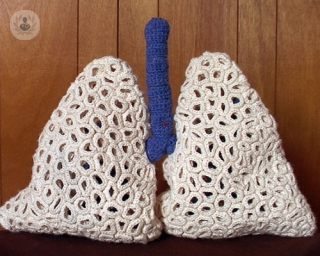

Pulmonary fibrosis – the symptoms to look out for, and when to get treatment
By Dr Amit Patel
2025-01-14
Leading consultant pulmonology and respiratory specialist, Dr Amit Patel, explains the causes of pulmonary fibrosis, what signs to look out for, and how it can be treated. See more
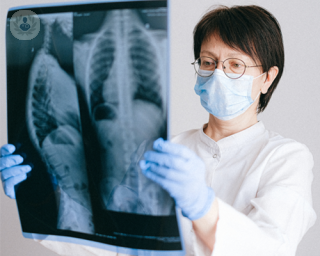

Pulmonary fibrosis: how severe can it be?
By Dr Tuck-Kay Loke
2025-01-14
The build-up of scar tissue in the lung can cause the organ to harden, making breathing difficult. What causes this and how can it be treated? Highly respected consultant respiratory physician explains pulmonary fibrosis, the medical term for this condition. The Tunbridge Wells-based consultant explains the signs and symptoms, how it is diagnosed, and what the life expectancy of someone with pulmonary fibrosis is. See more


Does COVID-19 have a permanent effect on the lungs?
By Dr Grace Robinson
2025-01-08
Considering its initial status as a dangerous respiratory illness with unknown qualities, it’s no surprise that people may want to know all about the after effects of COVID-19 on the lungs. Leading specialist in pulmonary and respiratory medicine Dr Grace Robinson provides her reassuring, expert take on the side effects of COVID-19 on the lungs, and just how acute the symptoms are. See more
Experts in Pulmonary fibrosis
-
Dr Amit Patel
Pulmonology & respiratory medicineExpert in:
- Cough
- Asthma
- Sarcoidosis
- Pulmonary fibrosis
- Obstructive sleep apnea
-
Dr Tim Gatheral
Pulmonology & respiratory medicineExpert in:
- Chronic cough
- Bronchiectasis
- Chronic obstructive pulmonary disease (COPD)
- Lung diseases
- Shortness of breath
- Pulmonary fibrosis
-
Dr Bhashkar Mukherjee
Pulmonology & respiratory medicineExpert in:
- Pulmonary fibrosis
- Cough
- Breathing problems
- Bronchoscopy
- Asthma
- Chronic obstructive pulmonary disease (COPD)
-
Dr Angela B Jones
Pulmonology & respiratory medicineExpert in:
- Chronic cough
- Asthma
- Pulmonary fibrosis
- Lung cancer
- Long Covid
- Respiratory infection
- See all

London Bridge Hospital - part of HCA Healthcare
London Bridge Hospital - part of HCA Healthcare
27 Tooley St
No existe teléfono en el centro.
By using the telephone number provided by TOP DOCTORS, you automatically agree to let us use your phone number for statistical and commercial purposes. For further information, read our Privacy Policy
Top Doctors

The Lister Hospital - part of HCA Healthcare
The Lister Hospital - part of HCA Healthcare
Chelsea Bridge Road, London
No existe teléfono en el centro.
By using the telephone number provided by TOP DOCTORS, you automatically agree to let us use your phone number for statistical and commercial purposes. For further information, read our Privacy Policy
Top Doctors

Syon Clinic - part of Circle Health Group
Syon Clinic - part of Circle Health Group
941 Great West Rd, Brentford TW8 9DU
No existe teléfono en el centro.
By using the telephone number provided by TOP DOCTORS, you automatically agree to let us use your phone number for statistical and commercial purposes. For further information, read our Privacy Policy
Top Doctors
-
London Bridge Hospital - part of HCA Healthcare
27 Tooley St, Central LondonExpert in:
- 24-hour service
- Cardiology
- Minimal access surgery (keyhole surgery)
- Orthopaedic surgery
- Cardiovascular disease
- Gastroenterology
-
The Lister Hospital - part of HCA Healthcare
Chelsea Bridge Road, London , Central LondonExpert in:
- Cancer
- Cardiology
- Orthopaedic surgery
- Pregnancy
- Physiotherapy
- Women’s health
-
Syon Clinic - part of Circle Health Group
941 Great West Rd, Brentford TW8 9DU, West LondonExpert in:
- Allergies nose and ears
- Allergy Dermatitis
- Allergy
- Clinical analysis
- Anxiety
- Digestive
- See all
- Most viewed diseases, medical tests, and treatments
- Snoring
- Autoimmune diseases
- Minimal access surgery (keyhole surgery)
- Aortic aneurysms
- Long Covid
- Medicolegal
- Robotic surgery
- MRI
- Respiratory failure
- Interventional cardiology


